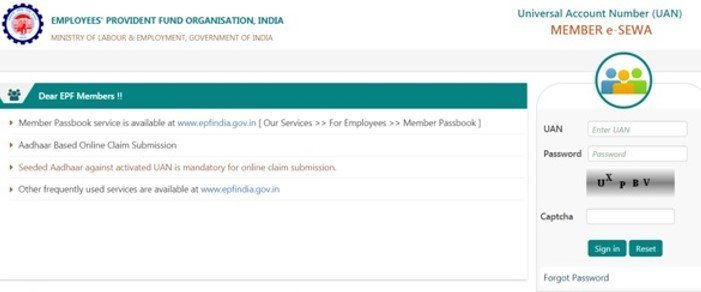Investing in real estate is a popular way to build wealth, but many people are turned off by the idea of being a landlord. The good news is you can get all the benefits of real estate investing without the hassles of property management. This is possible through vehicles like a Real Estate Investment Trust (REIT), which allows you to invest in a portfolio of properties and earn passive income. Let’s explore how you can start investing in real estate without ever dealing with a tenant.
What is a Real Estate Investment Trust (REIT)?
A Real Estate Investment Trust, or REIT, is a company that owns, operates, or finances income-generating real estate. Think of it like a mutual fund, but for property instead of stocks. These companies pool money from many investors to buy and manage a wide range of real estate assets.
This allows individual investors to earn dividends from real estate investments without having to buy, manage, or finance any properties themselves. The properties owned by a REIT can include everything from apartment buildings and office towers to warehouses, healthcare facilities, and shopping centers.
The Major Benefits of Investing in REITs
One of the biggest draws of REITs is the ability to diversify your portfolio. Instead of putting all your money into one property, you are investing in a large collection of assets, which spreads out your risk. It’s a completely passive way to get into the property market.
Another key advantage is the tax structure. REITs are legally required to pay out at least 90% of their taxable income to shareholders as dividends. In return, they generally do not have to pay federal corporate income tax. This structure often results in substantial dividend yields for investors, providing a steady stream of income.
Understanding the Two Main Types of REITs
When you decide to invest in a REIT, you will encounter two primary categories: public and private. The main difference between them is how they are bought and sold. This distinction significantly impacts their liquidity, stability, and overall investment strategy. Understanding both types is crucial to choosing the one that best fits your financial goals.
| Feature | Public REITs | Private REITs |
| Trading | Traded on a national stock exchange | Not traded on a stock exchange |
| Liquidity | High (can be bought and sold easily) | Low (shares cannot be sold at will) |
| Volatility | Susceptible to market volatility | Insulated from daily market swings |
| Performance Focus | Often focused on short-term performance | Focused on long-term growth and stability |
Public REITs: Liquidity and Market Fluctuations
Public REITs are listed and traded on major stock exchanges, just like the shares of companies like Apple or Google. This makes them very easy to buy and sell, offering high liquidity. You can check the performance of your investment daily and decide to sell your shares whenever the market is open.
However, this liquidity comes with a downside. Because they are publicly traded, public REITs are subject to the same market volatility as other stocks. Their price can go up or down based on overall market sentiment, not just the performance of the underlying real estate. This often leads them to focus more on short-term results to please the market.
Private REITs: Stability and Long-Term Growth
Private REITs, on the other hand, are not traded on a public stock exchange. This means they are not as liquid as their public counterparts; you can’t just sell your shares on a whim. While this might seem like a disadvantage, it provides a significant benefit: stability.
Since they are not subject to the daily ups and downs of the stock market, private REITs can focus entirely on long-term growth. The management team can make decisions based on what is best for the properties and the investors over several years, not just the next quarter. Key advantages include:
- Less exposure to stock market-driven price volatility.
- A primary focus on the actual performance and appreciation of the real estate assets.
- The potential for higher, more stable dividends compared to public REITs.
This long-term approach is designed to generate real growth for the investor, away from the noise of public markets.
How Companies like DiversyFund Make Private REITs Accessible
In the past, investing in private REITs was typically reserved for wealthy, accredited investors. However, companies like DiversyFund are changing the game. They use an online platform to break down these traditional barriers, making it possible for everyday people to invest.
DiversyFund’s model is built on opening up real estate investing to everyone, not just the top 1%. They do this by offering low investment minimums and eliminating unnecessary broker fees. Through their platform, you can invest directly into a portfolio of private multifamily properties, allowing you to diversify your assets beyond the typical stocks and bonds and build wealth like an experienced real estate investor.
Frequently Asked Questions
What is the main advantage of a REIT over owning a rental property?
The primary advantage is that REITs offer a passive investment. You don’t have to deal with tenants, maintenance, or other landlord responsibilities, and your investment is instantly diversified across multiple properties.
Are REITs a good investment for beginners?
Yes, REITs are often considered an excellent entry point for beginners. They provide access to the real estate market with a low initial investment, professional management, and high liquidity (especially for public REITs).
Why must REITs pay out 90% of their profits as dividends?
This is a legal requirement set by the IRS for a company to qualify as a REIT and avoid paying corporate income tax. This structure benefits investors by ensuring a consistent flow of dividend income.
What is the biggest difference between a public and a private REIT?
The biggest difference is liquidity. Public REITs are traded on stock exchanges and can be easily sold, while private REITs are not, making them a long-term, illiquid investment. This also makes private REITs less volatile.
How does a platform like DiversyFund help me invest?
DiversyFund provides an easy-to-use online platform that gives you access to a private REIT. They handle the property acquisition and management, allowing you to invest with a small amount of money and no broker fees.







Leave a Comment